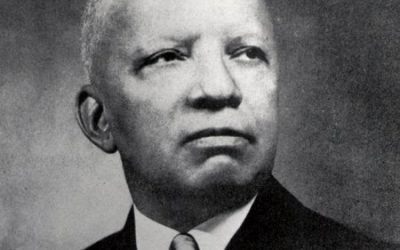What we now call Black History Month was originated in the US in 1926 by Carter Godwin Woodson as Negro History Week. The month of February was selected in deference to Frederick Douglass and Abraham Lincoln, who were both born in that month.
Carter Goodwin Woodson said: “If a race has no history, it has no worthwhile tradition, then it becomes a negligible factor in the thought of the world, and it stands in danger of being exterminated.”
Always one to act on his ambitions, Woodson decided to take on the challenge of writing black Americans into the nation’s history. He founded the Association for the Study of Negro Life and History in 1915 to train Black historians and to collect, preserve, and publish documents on Black life and Black people. He also founded the Journal of Negro History (1916), Associated Publishers (1922), and the Negro Bulletin (1937). Woodson spent his life working to educate all people about the vast contributions made by Black men and women throughout history.
Carter Goodwin Woodson died on 3 April 1950 and Black History Month is his legacy.
Black History Month UK

In Britain, October is a season of events and activities that provide a valuable opportunity to explore the culture, history and achievements of Black and ethnic minority communities.
Black History Month UK was founded by Ghanaian analyst Akyaaba Addai-Sebo. The inspiration for Black History Month came from an incident that happened at the GLC where he worked as the coordinator of special projects. A female colleague of Addai-Sebo’s came to work one morning, looking very downcast. When he asked her what the matter was, she confided that the previous night when she was putting her son Marcus to bed he asked her, “Mum, why can’t I be white?”
The mother was taken aback. She said that she was so shocked that she didn’t know how to respond to her son. The boy that had been named after Marcus Garvey had asked why he couldn’t be white!
Addai-Sebo was familiar with black history month in America, and following the incident with Marcus, he thought that something like that had to be done here in the UK.
The first Black History Month event in the UK was held on the 1 October 1987.






Leave a Reply